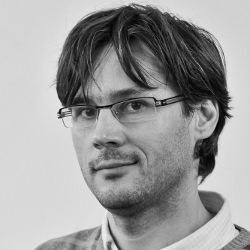Aby vám náš web dobře sloužil, používáme technologie jako jsou soubory cookies. Některé jsou nutné, bez nich by stránky správně nefungovaly. Statistické cookies nám umožní zjistit, jak náš web funguje a jak ho pro vás zlepšit. Díky marketingovým cookies vás budeme na sociálních sítích moci upozornit třeba na otevření nového programu. Váš souhlas můžete kdykoli odvolat.
Technické uložení nebo přístup je nezbytně nutný pro legitimní účel umožnění použití konkrétní služby, kterou si odběratel nebo uživatel výslovně vyžádal, nebo pouze za účelem provedení přenosu sdělení prostřednictvím sítě elektronických komunikací.
Technické uložení nebo přístup je nezbytný pro legitimní účel ukládání preferencí, které nejsou požadovány odběratelem nebo uživatelem.
Technické uložení nebo přístup, který se používá výhradně pro statistické účely.
Technické uložení nebo přístup, který se používá výhradně pro anonymní statistické účely. Bez předvolání, dobrovolného plnění ze strany vašeho Poskytovatele internetových služeb nebo dalších záznamů od třetí strany nelze informace, uložené nebo získané pouze pro tento účel, obvykle použít k vaší identifikaci.
Technické uložení nebo přístup je nutný k vytvoření uživatelských profilů za účelem zasílání reklamy nebo sledování uživatele na webových stránkách nebo několika webových stránkách pro podobné marketingové účely.

 Petr Kantor has been professionally engaged in lecturing, coaching and counselling for the commercial sector, public administration and non-profit organizations since 2003. Since 1996, he has been working in the field of youth, particularly at the Association of Secondary School Clubs of the Czech Republic, implementing events for unorganised youth. He runs weekend meetings as well as youth camps in cooperation with European youth organisations focusing on self-development and youth initiatives. He runs school magazines and competitions for young musicians and young artists.
Petr Kantor has been professionally engaged in lecturing, coaching and counselling for the commercial sector, public administration and non-profit organizations since 2003. Since 1996, he has been working in the field of youth, particularly at the Association of Secondary School Clubs of the Czech Republic, implementing events for unorganised youth. He runs weekend meetings as well as youth camps in cooperation with European youth organisations focusing on self-development and youth initiatives. He runs school magazines and competitions for young musicians and young artists.